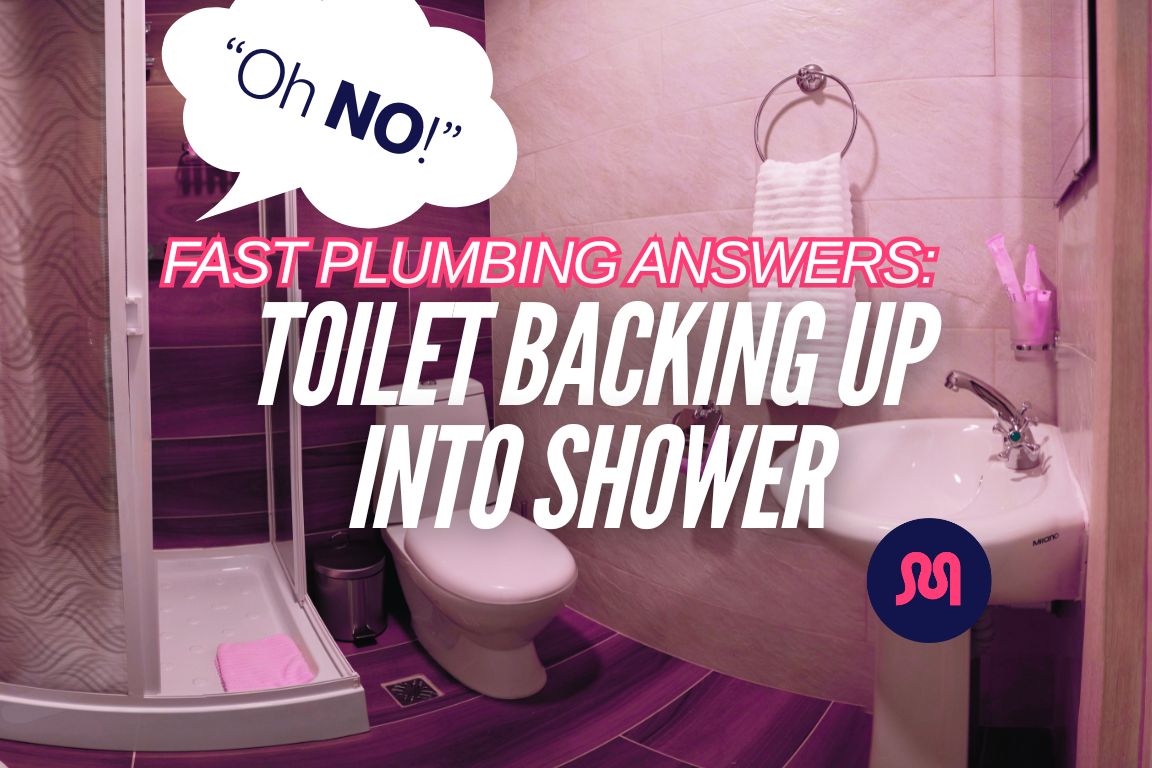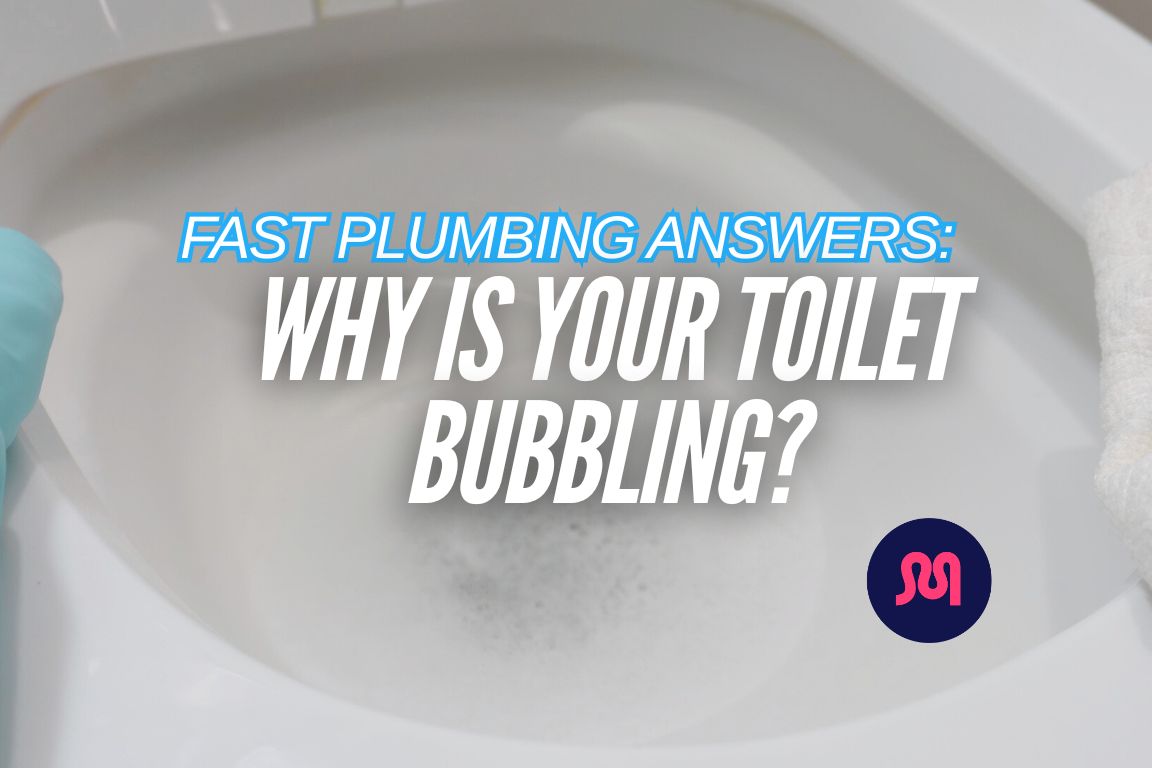What is Reverse Osmosis? Meet the Best Defense Against PFAS
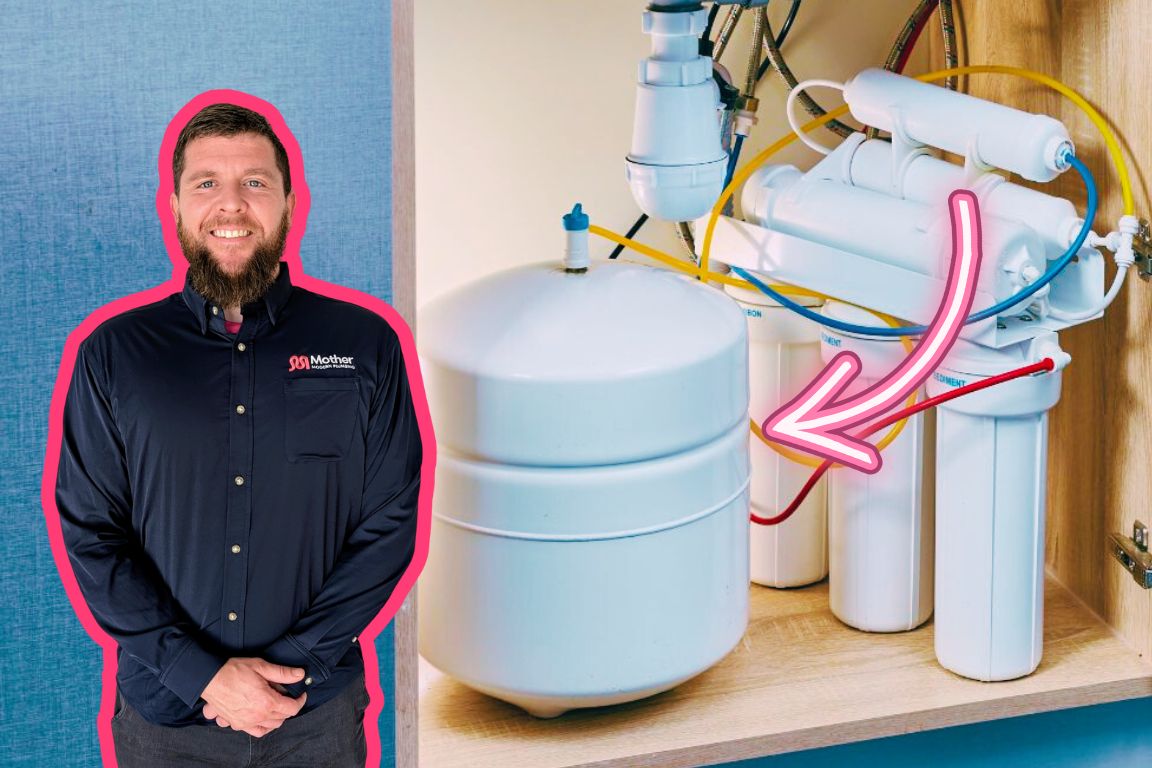
table of contents
table of contents
You’ve read about how PFAS (forever chemicals) are threatening water quality in Dallas and across the country. You’re looking for a home water filtration system that doesn’t just reduce hard water scaling and sediment buildup- you want one that fights PFAS contamination, too.
You’ve heard about “RO filters” solving all these problems- but what is reverse osmosis filtration?
We’re Mother Modern Plumbing, an innovative plumbing company that truly cares about Dallas residents. Our team, led by five Master Plumbers, doesn’t just fix plumbing problems- we want to improve your health with better home water quality.
We’ve heavily researched reverse osmosis water filtration- a pressure-based system that filters harmful contaminants, forever chemicals and hard minerals out of your tap water. In this article, we’ll introduce you to reverse osmosis (RO), how it works, and why it’s a great solution for improving your Dallas water supply.
Interested in getting a quote? Call Mother 7 days a week and schedule an appointment with a licensed water filtration expert- we’ll walk you through all the details.
{{reverse-osmosis-filtration="/services/reverse-osmosis-filtration"}}
What Is Reverse Osmosis? Here Are the Basics
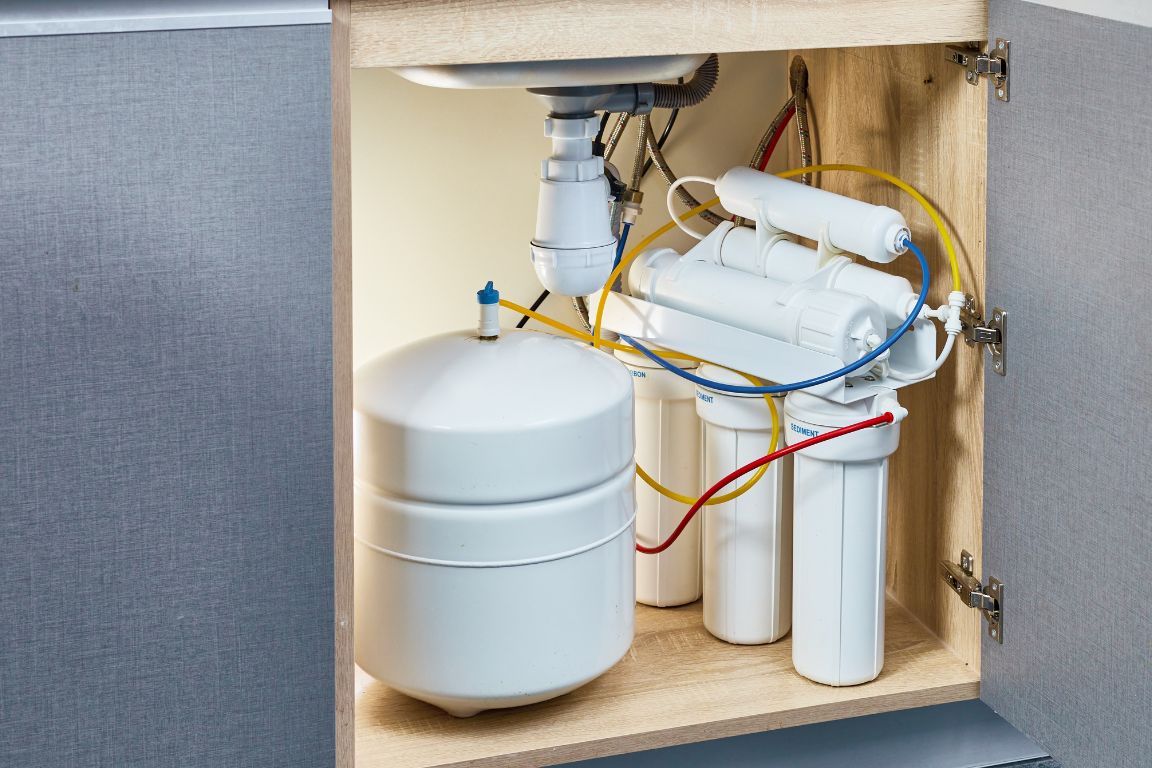
Reverse osmosis (RO) uses high, concentrated pressure to separate water molecules from impurities like chemicals, dissolved solids and contaminants. Point-of-use RO filters eliminate 94% or more of forever chemicals in your water.
A reverse osmosis water filtration system forces water through a semi-permeable membrane with extremely small pores. These pores measure less than 0.001 microns- 70,000 times thinner than a strand of hair.
Only water molecules can fit through these ultra-fine pores in almost every case. That means larger molecules and dissolved materials are filtered out of your water before it enters your taps and faucets.
How reverse osmosis filtration systems work in your home
Want deeper insight into how reverse osmosis filters work in your house? Our licensed technicians have the info every “tech geek” craves.
Here are the five stages of home water filtration using reverse osmosis:
- Pretreatment filters: Your water quality improves before it even reaches the RO membrane. Cartridge filters are put in place to remove larger particles like sediment to ensure the membrane isn’t damaged and works at an optimal level.
- Pressure pump: A built-in pump highly pressurizes the incoming water supply. Contaminated water (with dissolved salts and solids) wants to find areas with low solvents. Pressurizing this water overcomes this natural process, and keeps solvents in your water from passing through the RO membrane.
- Semi-permeable membrane: The pressurized water is pushed through the reverse osmosis membrane. The membrane’s pores are microscopic in size to reject larger contaminant particles and molecules.
- Contaminant removal: The membrane’s ultra-fine pores keep contaminants out and only allow water molecules to pass through. Salt, hard minerals and chemicals stay out of your taps, clean water comes in.
- Two streams: The permeate (the clean water that clears your membrane) enters your home. The concentrate (or “brine”), made up of all particles rejected by your RO membrane, is diverted out to your drains.
Most home reverse osmosis filters are point-of use
Homeowners typically purchase point of use RO filtration systems. These systems offer water filtration for a specific fixture- they’re most commonly installed under a single sink.
In rare cases, homeowners consider a whole home reverse osmosis system. These RO systems treat all incoming water entering your home. They’re installed at your main water line and offer whole-home protection.
The choice between whole home and point of use RO systems comes down to a cost-benefit comparison. Whole home systems cost more to install but provide comprehensive protection throughout your home. Point of use systems are less expensive, but only affect a single fixture.
Here’s a helpful comparison table for homeowners shopping for different types of reverse osmosis filtration systems:
TABLE: Whole home vs. point of use reverse osmosis filtration systems
12 Things Your Reverse Osmosis Filters Out of Water
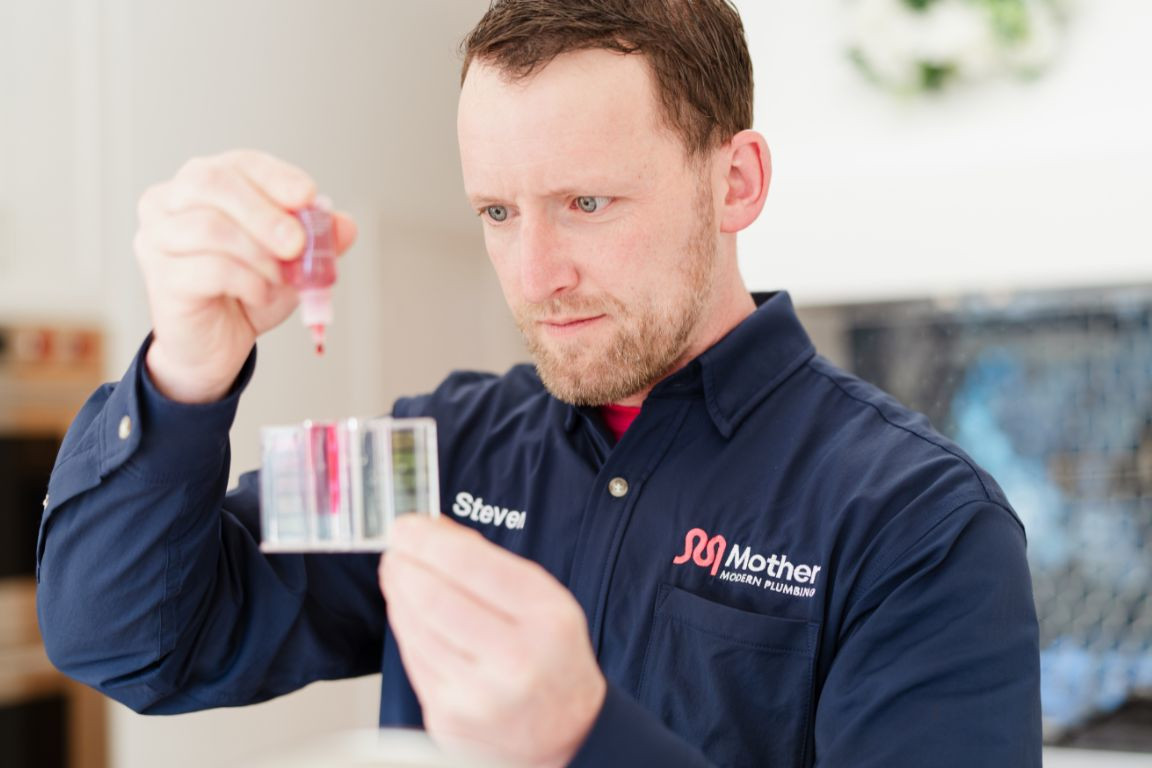
Looking for specific items and materials that are filtered out by your reverse osmosis system? RO filters are designed to keep the following 12 things out of your tap water:
- Sediment
- PFAS (forever chemicals)*
- Dissolved salts
- Dissolved minerals (e.g. calcium, magnesium, chloride)
- Chloramines
- Heavy metals (lead and copper)
- Herbicides and pesticides
- Radiological contaminants (e.g. uranium)
- Biological contaminants (e.g. bacteria and viruses)
- Hormones
- Antibiotics
- Volatile organic compounds (VOCs)
*A Duke University study found that most reverse osmosis filters remove 94% or more of PFAS from water.
Where your reverse osmosis wastewater goes
After the RO filtration process, you’re left with two streams of water:
- Filtered water, which passes safely into your home’s taps and fixtures;
- Wastewater, which collects in a concentrated stream.
This wastewater flow does not enter your taps. Instead, this stream of contaminants, minerals and concentrated impurities diverts to your home’s drainage system. This ensures that your wastewater (or “brine”) is not used for drinking or bathing.
4 Reasons Reverse Osmosis Filters Are Perfect for Dallas Homes

While reverse osmosis filters improve water quality and reduce plumbing damage in every home, they’re particularly useful for residents of the Dallas-Fort Worth Metroplex.
The Dallas water supply offers a difficult blend of incoming potable water issues for local residents. RO filters directly assist homeowners address 4 of these concerns:
- Reduce mineral scaling caused by Dallas hard water
- Get forever chemicals out of your drinking water supply
- Improve water heater efficiency by limiting sediment buildup
- Stop blue-green algae from creating “summer water” in your house
RO filters eliminate mineral scaling caused by hard water
Texas has the 6th hardest water in America. DFW residents deal with the persistent effects of hard water in their homes:
- Mineral scaling in water-using appliances (water heaters, dishwashers)
- Calcium deposits on faucets
- Limescale accumulation in freshwater pipes
- Brittle hair and dry skin after showers
Reverse osmosis filters block dissolved minerals from passing through their membranes. This keeps mineral scaling out of your home’s water lines- which reduces the frequency of plumbing service repairs and descaling maintenance.
{{why-does-dallas-have-hard-water="/blogs/why-does-dallas-have-hard-water"}}
Study: reverse osmosis removes 94%+ of PFAS from water
PFAS (or “forever chemicals”) are a pervasive problem across the DFW Metroplex. These contaminants cause a plethora of health issues, including increased risk of certain cancers, kidney disease and liver damage.
Researchers from Duke University and North Carolina State University tested 89 different home water filters. They found that reverse osmosis systems were most effective at eliminating these forever chemicals from your home’s water supply.
According to their study, reverse osmosis filters reduced PFAS levels by 94% or more in water.
Worried about PFAS in water? We are, too. Read more about the increased risk of forever chemicals in the Dallas water supply, and the best measures to protect your home.
{{pfas-in-water-dallas="/blogs/pfas-in-water-dallas"}}
Reduce sediment buildup in your home water heater system
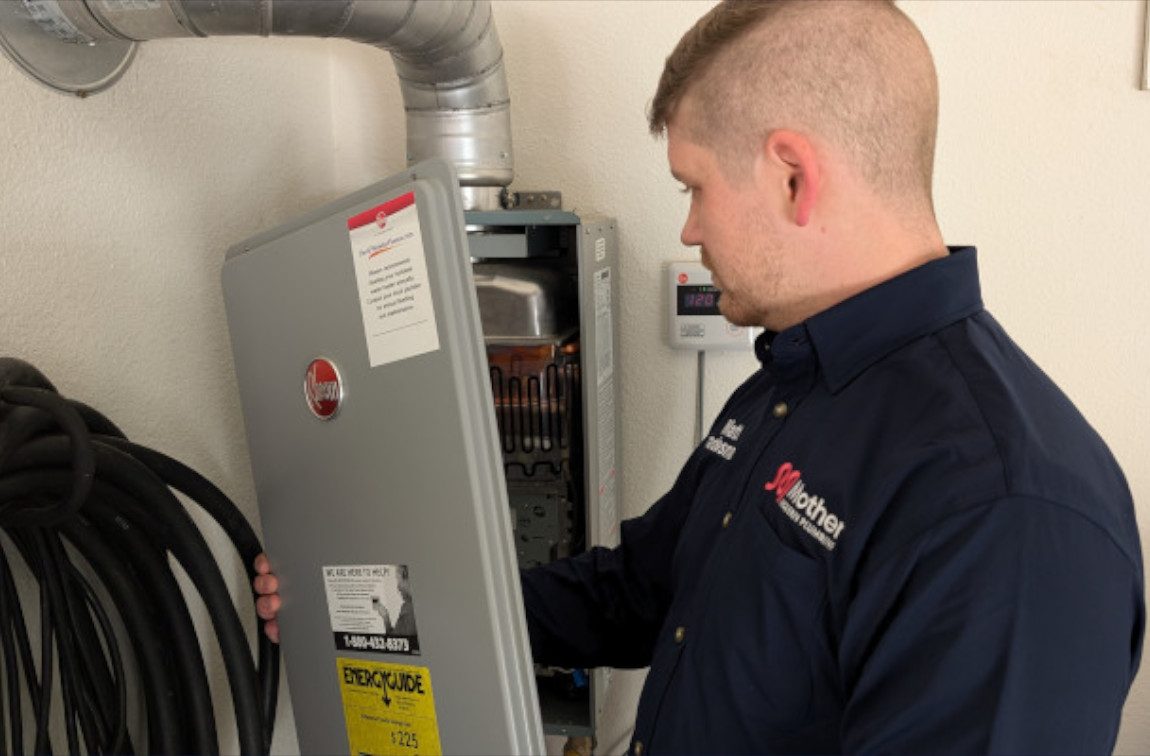
Water heater flushing is among our most frequent plumbing maintenance service requests in DFW homes. Sediment buildup in water heater tanks is responsible for inefficient hot water delivery, tank corrosion, and leaks.
The pre-filters in reverse osmosis systems are specifically engineered to stop sediment from entering your home’s usable water. A whole home RO system blocks sediment from reaching every fixture and appliance in your house- most notably, your hot water heater.
A sediment-free water heater increases system efficiency, which directly reduces your home energy use. This leads to lower monthly utility bills and less frequent water heater repairs.
Remove blue-green algae from your home’s water
Residents of DFW communities like the Park Cities know all about “summer water”. Highland Park residents experience algal blooms in the city water supply due to extreme summer heat.
This harmful blue-green algae doesn’t just make your water taste bad- it causes rashes, headaches, and ear, nose and throat issues.
Studies show that reverse osmosis systems effectively remove up to 99.9% of blue-green algae cells from your water- and the toxins that come with them.
{{highland-park-tx-water-algae-taste="/blogs/highland-park-tx-water-algae-taste"}}
Reverse Osmosis Filtration is Ideal for Your Dallas Water
Reverse osmosis technology uses a high-pressure pump, multiple filters and a specialized membrane to deliver clean, filtered water to your home. These systems are exceptional for Dallas residents concerned about PFAS, mineral scaling and biological contaminants.
The decision between whole home RO systems and point-of-use RO filters rests on a balance of overall cost and water quality protection. While many Dallas homeowners benefit most from a whole home reverse osmosis filter, we know budget is often a sensitive issue- that’s why we offer no-interest financing to qualified buyers, plus a 6-year warranty on parts and labor.
Considering a reverse osmosis filter for your Dallas home? Get no-hassle answers from a trained professional! Call Mother 7 days a week to schedule your consultation- we’ll guide you to the best decision for your home.
{{reverse-osmosis-filtration="/services/reverse-osmosis-filtration"}}


